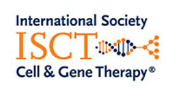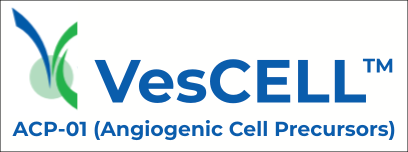VesCell Events & Live Webinars
-4(smaller)2.jpg)
Hemostemix (TSXV: HEM | OTCQB: HMTXF | FSE: 2VF0) is pioneering investigational approaches with VesCell™ (ACP-01), an autologous stem cell therapy designed for patients who have exhausted other options.
Welcome to VesCell: Pioneering Vascular Health
Imagine a world where vascular disease doesn’t diminish your mobility, vitality, or longevity. At VesCell, we’re making that vision a reality with VesCell (ACP-01), a personalized stem cell therapy that harnesses your own cells to repair blood vessels and restore health. Join us in July 2025 for a series of exciting events to explore the future of vascular health and groundbreaking regulatory changes in Florida and Utah.
VesCell Health Talks #13: Reversing Vascular Dementia – From Burden to Breakthrough Therapies
Join us for an illuminating webinar on Vascular Dementia, the second most common form of dementia worldwide, affecting millions and imposing a staggering economic toll.
In this session, we'll demystify this often-overlooked condition caused by reduced blood flow to the brain—due to strokes, small vessel disease, or chronic vascular issues—leading to cognitive decline, memory loss, and impaired daily functioning.
Dive into VesCell's Cutting-Edge Phase 1 Clinical Study on ACP-01 (VesCell™): Explore our innovative autologous stem cell therapy, ACP-01, designed to regenerate vascular networks and restore brain perfusion in no-option patients. Building on 11 peer-reviewed publications demonstrating safety across 498 treatments for ischemic conditions—like critical limb ischemia and heart failure—we're advancing a groundbreaking FDA basket protocol (Pre-IND Filing 1517) to evaluate ACP-01's safety, feasibility, and early efficacy in vascular dementia alongside other vascular indications. Learn how real-world evidence from Florida's SB 1768 compassionate use program is accelerating our path to pivotal data in neurology, cardiology, and vascular medicine.
Key Learning Objectives:
- Understand Patient Access Pathways: Gain insights into navigating care for vascular dementia patients, including eligibility for ACP-01 under expanded access programs and strategies to overcome barriers to regenerative therapies.
- Empower Families: Equip caregivers with practical tools for early detection, risk factor management (e.g., hypertension control), and holistic support to improve quality of life amid the emotional and financial strain of this progressive disease.
Whether you're a clinician, caregiver, researcher, or patient advocate, this webinar equips you with actionable knowledge to combat vascular dementia's rise. Register now to secure your spot.
📅 Date & Time: Thursday, Oct 2, 2025 | 12:00 PM ET
🎥 Format: Live Webinar with Q&A - Reolay available.
👉 Learn more about our mission to advance cell therapy access under Florida’s SB 1768 and register now to save your spot.
Disclaimer: VesCell™ (ACP-01) is an investigational therapy and has not been approved by the U.S. FDA. It is available under special access in select jurisdictions.

Your story can help others
Join the Restore the Flow Community
Get our every news release and receive our product news announcements and community events.





Important Safety Data
-
VesCell (ACP-01) is an investigational therapy under development, not approved by the FDA, and only available in specific states (Florida) and countries.
-
Outside of the U.S., Treatments are subject to health regulations in Canada, Bahamas, Dominican Republic, and Switzerland, and not US FDA oversite.
-
Canada’s Special Access program allows unapproved treatments for serious conditions when conventional therapies have failed.
-
U.S. Patients travel at their own risk for treatments received abroad.
-
US Patients should consult with their physicians before seeking treatment abroad.
-
Treatments are generally out of pocket expenses and may not be covered by private or government insurance.
Treatment Risk Information
Angiogenic Precursor Cell Treatment of Critical Limb Ischemia Decreases Ulcer Size, Amputation and Death Rate: Re-Examination of phase II ACP NO-CLI Trial Data
Fraser C Henderson*, Ina Sarel, Kelly Tuchman, Stephen Lewis and York Hsiang
Volume5-Issue2
Dates: Received: 2024-01-18 | Accepted: 2024-02-01 | Published: 2024-02-02
Pages: 092-105
Abstract
Introduction: Critical limb ischemia has a prevalence in the US of 1.33%, with mortality 15-20% and major amputation 10-40% per year. Stem cell treatment has emerged as a treatment option for the 45% of patients for whom revascularization procedures are not possible.
Objective: This study re-examines the data of the Phase II clinical treatment of no option Critical limb ischemia with Hemostemix’ angiogenic cell precursors, focusing upon ulcer wound healing, amputation and death rate of this cohort.
Methods: Primary endpoints were changes in ulcer size and major amputation or death within one year of treatment. The secondary endpoint was change in pain level.
Results: From 2015 to 2021, 67 patients with no option Critical limb ischemia were allocated to treatment with ACP-01 (46/67) or placebo (21/67). From this data, only patients who presented with wound ulcers before administration of ACP-01 were reviewed (21 treatment, 8 placebo). Ulcer size in the treated group decreased from a mean of 1.46 cm2 to 0.48 mm2 (p = 0.01) by 3 months. There was no significant decrease in the size of the ulcers of the placebo group (p < 0.54). At one year there were no complications related to treatment. The treatment group had one amputation (4.8%) and one death (4.8%); the placebo group had 2 amputations (25%) and 1 death (12.5%). Change in pain was not significant in either group at 3 months, but at 1 year was improved in the placebo group (p = 0.01).
Conclusion: The administration of ACP-01 within a program of careful patient follow up is safe and associated with reduced ulcer size and decreased rate of amputation and death. Consideration should be given to re-administration of stem cell treatments every 3-6 months to optimize improvement of Critical limb ischemia. Further studies, more appropriately powered, are warranted.

